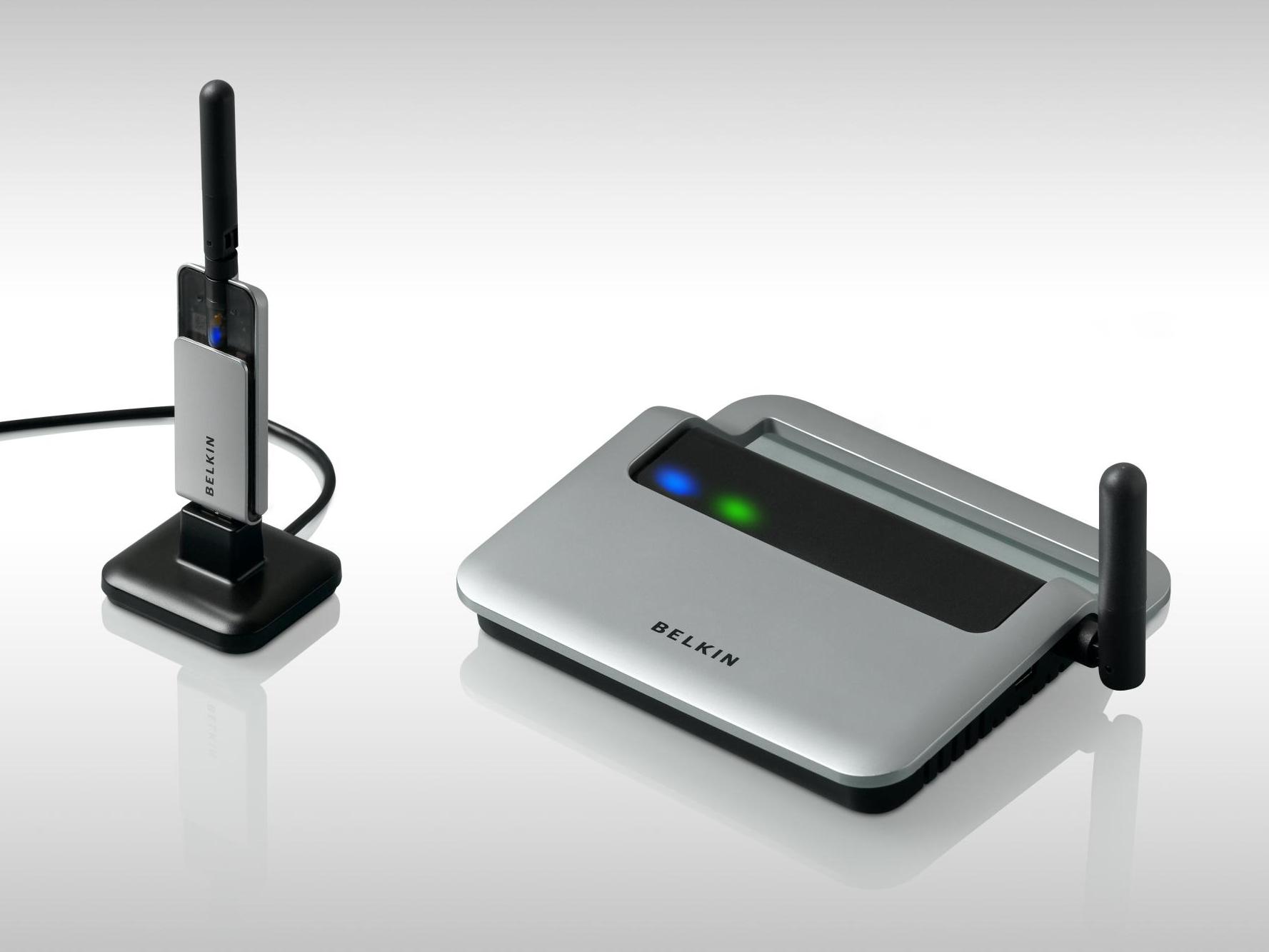TechRadar Verdict
A good start, and it's nice to see some Wireless USB products finally coming out. There's a long way to go though, before these products will go mass-market
Pros
- +
It works
- +
Speed isn't bad
- +
Easy to install
Cons
- -
Range is laughable
- -
needs W-USB peripherals
- -
Expensive!
Why you can trust TechRadar
Goodness, we've been craving this for years.
Wireless USB promised sweet relief from almost every computing inconvenience going – no more twisted mass of cabling, no more scrabbling miserably for the right lead, no more need to have your every peripheral within arm's reach of your PC.
Most of all, it'd have all the ease and speed which that Bluetooth nonsense so sorely lacks. Dare we dream it's real?
Not a good start
Yep, it's real, but turns out reality isn't terribly exciting. Wireless USB is, indeed, USB without the wire, but perhaps a little too literally.
The Belkin Wireless USB Hub (F5U302ea) is the first CE certified Wireless USB product for Europe. It comes with the Wireless USB hub itself, a Wireless USB Adapter, a power adapter, and a Wireless USB adapter dock
This Belkin receiver and four-port hub set claims a 10 metre range, but in practice its signal didn't reach the next room, some 4m away. It only sprang to life when less than two metres away from the host PC, and even then only when there were no walls in the way.
So, our happy dreams of syncing iPods from the kitchen were replaced by the tedium of cleaning a spot of cable mess off the desktop. But then you still have to physically plug each device into the hub anyway, plus of course the hub needs plugging into the wall, so what you have actually saved?
Wireless USB frailties
Once devices with Wireless USB built-in start showing up, things'll improve – imagine simply moving your MP3 player within range to sync it, with no physical connection whatsoever unless you need to charge its battery.
Sadly there's no sign of such toys yet. At least, though, the ease of this inescapably first-gen take on the tech can't be faulted. The hub needs an initial physical connection to the host PC, whereby the driver will automatically establish security settings.
Then unplug it and deposit it where you like, connect the receiver stick to the PC and the two parts will find each other automatically from thereon in. No passkeys, no annoying tiny buttons that need synchronising – it's as close to plug'n'play as wireless tech gets.
Acceptable speed
Just pop your USB devices into the hub, and the PC will treat them as though they had a standard physical connection. It's pleasingly startling the first time you see it working.
Performance isn't bad either. It took 3m21s to shift a 1.1Gb file to an external hard drive, compared to 1m33s via standard USB 2.0. Not ideal for pushing big files around then, but just dandy for syncing a few songs to an iPod or firing printouts into the short-range ether.
It's also remarkably free from lag – using a mouse over it for desktop work was business as usual, though there was a barely perceptible sense of delay that could cause a problem in Team Fortress 2 sessions.
As a proof of concept, this first take on Wireless USB is a winner. It's almost as easy to use as its becabled brethren, and its speed is impressive.
Big loser
As a practical device though, it's a loser. Until the range is doubled at the very least, all it realistically amounts to is a very expensive USB hub with one less cable and half the performance.
Oh, and there's a constantly, maddeningly flashing blue light on both hub and receiver when they're connected, which is forehead-slapping idiocy on Belkin's part. First-gen-itis, then – the second one could be incredible.
